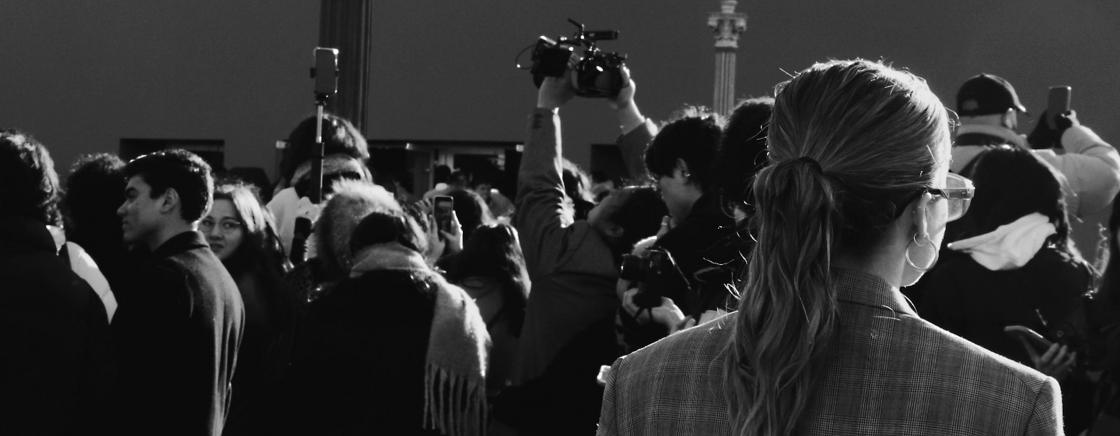
It's the beginning of Paris Fashion Week 2024!
Recognized as the undisputed epicenter of fashion on the international stage, Paris holds a significant position within this exhilarating universe. Every year, during a dedicated week for each season, the city comes alive to the frenetic rhythm of couture houses and their iconic creations. This dynamic period, where fashion becomes the beating heart of the capital, perfectly embodies the essence of Paris. But how did this prestigious tradition come about and evolve over the decades? Let's delve into the fascinating history of Paris Fashion Week, a witness to a glamorous heritage and timeless creativity on the global stage.
The Origins
In the 19th century, French haute couture was slowly but surely emerging as a dominant force in the fashion world. During this time, Parisian couture houses held private presentations, reserved for an exclusive clientele. On these occasions, they used to unveil their latest creations in the intimacy of their salons. These events were private affairs, accessible only to the elite of society, evoking a world of luxury and sophistication where fear of plagiarism reigned supreme, leading to high surveillance, prohibiting the presence of the press and photographers.
The origins of what would become Paris Fashion Week seems to be the "Battle of Versailles," an event organized by the Federation of Haute Couture and Fashion with the aim of raising funds for the renovation of the Palace of Versailles. During this historic event, the fashion shows took the form of duels, pitting French designers against Americans in a colorful competition. These spectacular runway shows showcased sublime creations, thus marking the beginning of moving fashion shows.
One of the iconic figures of this period was the designer Paul Poiret, a visionary who sought to merge business and high society by organizing sumptuous balls where each guest competed in the most elegant attire.
The 1920s and 1930s saw the rise of great talents through these private salons and balls, among which Coco Chanel and Elsa Schiaparelli distinguished themselves, now essential figures in fashion.
At the end of World War II, the Chambre Syndicale de la Haute Couture issued regulations requiring designers to present at least 35 outfits for day and night each season.
Fashion Week evolution : from its emergence to its consecration
In 1947, Dior revolutionized the industry by introducing the "New Look," a trend inspired by America, thus making these events more accessible by opening their doors to the press and photographers.
Over the decades, interest in Parisian fashion intensified, attracting the attention of buyers, media, and fashion enthusiasts worldwide. In the 1970s, Paris Fashion Week took on a new dimension with the emergence of ready-to-wear. Avant-garde designers such as Yves Saint Laurent, Chanel, and Dior began presenting their ready-to-wear collections in spectacular fashion shows, thus democratizing fashion and making it accessible to a wider public.In the ensuing decades, Paris Fashion Week continued its metamorphosis, reflecting the perpetual evolutions of fashion and society. The 1990s were marked by the advent of supermodels such as Kate Moss, Naomi Campbell, and Carla Bruni, who brought a new dimension of glamour and fame to Parisian runway shows. Their presence was highly sought after at the time, significantly contributing to the publicity of the shows.
In the 1990s, young talented and daring designers, including Jean-Paul Gaultier, Thierry Mugler, and Christian Lacroix, emerged on the Parisian fashion scene, bringing with them a refreshing boldness. A memorable moment was Mugler's show, which brought together 6000 people at the Zénith in Paris, leaving a lasting impression with its extravagance. Additionally, icon Madonna highlighted Mugler's iconic cone bra, adding a cultural and provocative dimension to Fashion Week.

Today, Paris Fashion Week remains at the top of its game, attracting designers from around the world and setting trends for the seasons to come, symbolizing an anointment for young creators. The shows have become grand events, blending fashion, art, music, and culture in spectacular presentations that captivate the imagination. Furthermore, with the advent of social media and technology, Paris Fashion Week has become more accessible than ever, allowing fashion fans worldwide to follow the latest trends and behind-the-scenes of the shows in real time.
Fashion as a Form of Cultural Expression
Beyond its importance in the fashion industry, Paris Fashion Week also plays a crucial role in preserving and promoting French culture. By showcasing the talent of French designers and celebrating the heritage of haute couture, Paris Fashion Week contributes to maintaining France's reputation as the global capital of fashion and style. Moreover, fashion shows provide a platform for emerging designers to express their artistic vision and cultural identity, enriching the fashion landscape with a diversity of perspectives and influences.
Walking the streets of Paris during this time of year is like attending an outdoor fashion show throughout the day... Fashion enthusiasts, discover a world made for you during your visit to Paris!
Paris Fashion Week is much more than just a week of runway shows; it is an iconic event that celebrates art, creativity, and innovation in the world of fashion. From its humble beginnings to its current status as an iconic global event, Paris Fashion Week remains a headlight of the fashion industry, inspiring designers, buyers, and fashion enthusiasts worldwide. And as we look towards the future, one thing is certain: the legacy of Paris Fashion Week will continue to shine with unparalleled brilliance, illuminating the world of fashion for generations to come.